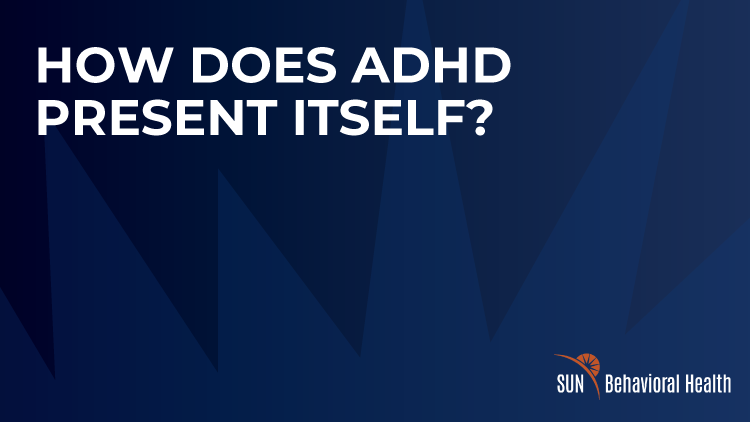Services
- Home
- Mental Health Services
- Who We Treat
- How We Treat
- Patients & Visitors
- About
close

When I used to hear the term “ADHD” I always was drawn back to a memory of summer camp when I was in middle school. One of my campmates had ADHD. There were times when he was incredibly fidgety, impulsive, and reactive. My camp counselors were very patient people, luckily, but that memory still sticks with me to this day.
This is probably the image you might have in your head as well, of a young child, most likely a boy, who’s overall seen as “disruptive.” Who might be loud or have outbursts and be “difficult to control.” After many years of study, we have now come to realize that ADHD isn’t always just hyperactivity. There are many other ways it can present itself and be a detriment to someone’s life. There are people who do have the symptoms of hyperactivity, but there’s the opposite end as well, of those with ADHD who are inattentive, distracted easily, and might find it hard to stick to timelines or remember details of daily routines.
ADHD can be a lifelong ailment that many adults are dealing with even today, but with the right skills and understanding, anyone can live a happy and productive life with ADHD.
According to the CDC, there are no hard truths about what exactly causes ADHD. However, there are many theories being worked on, and there are signs that a genetic link might be involved as well.
Some of the current studies indicate that some of these factors might be involved:
ADHD is a developmental condition affecting the brain.
As ADHD is a condition of the brain, there are certain outside factors that can cause someone to develop ADHD outside of pre-existing conditions. One of the most common ones is brain injuries. While not all brain injuries can cause ADHD, there have been cases of people who developed ADHD after a traumatic brain injury.
There is also a study that suggests there might be a link between seizures or epilepsy and developing ADHD. These studies are still being done, but it is worth the note.
In addition, there is also currently no link showing that all people with autism also have ADHD. While a person can certainly have both, having one does not guarantee that you have the other.
There are three different ways that ADHD can present in a person.
Regardless, ADHD is a spectrum, not three set ways that a person can present. If someone is predominantly hyper-impulsive, they could still struggle at times with attention to detail or remembering things. It’s important to understand the type of ADHD you are dealing with so you or your loved one can learn new skills to overcome these obstacles.
As with anything that exists in the world, there are many myths that have grown and circulated over time. Here are some of the most common ones.
“ADHD is a childhood issue. They’ll grow out of it.”
“ADHD is a boy’s disease. Girls don’t get it.”
“ADHD is only hyperactivity. If they’re fidgety, they probably have ADHD.”
“You can get ADHD from eating too much sugar/watching too much TV/bad parenting/etc.”
The ties between ADHD and genes have been researched quite a bit. There is a very strong case for a family connection in regard to ADHD. Many times when a child is diagnosed with ADHD, there is a high probability that someone else in their family, whether that’s a sibling or another parent, also has ADHD.
There is no singular gene responsible for ADHD. This means that a parent with ADHD could have a child that doesn’t have ADHD, and a child with ADHD doesn’t mean the parent or parents also have ADHD. Since ADHD can be developed through environmental factors, this also means that it’s not always genetic and isn’t always passed from parent to child.
ADHD can be treated with both behavioral therapy and medication, though a combination tends to work best for most people. Behavioral therapy is very important as it can help a person with ADHD better understand what some of their struggles may be, and help start to teach them some of the skills they will need to help overcome those struggles. Whether it's teaching them how to better manage their time, or how to incorporate things into their routine to best deal with bouts of hyperactivity.
Medication can also assist in managing dopamine levels in people with ADHD, which can also assist in lessening the severity of some of the symptoms associated with ADHD.